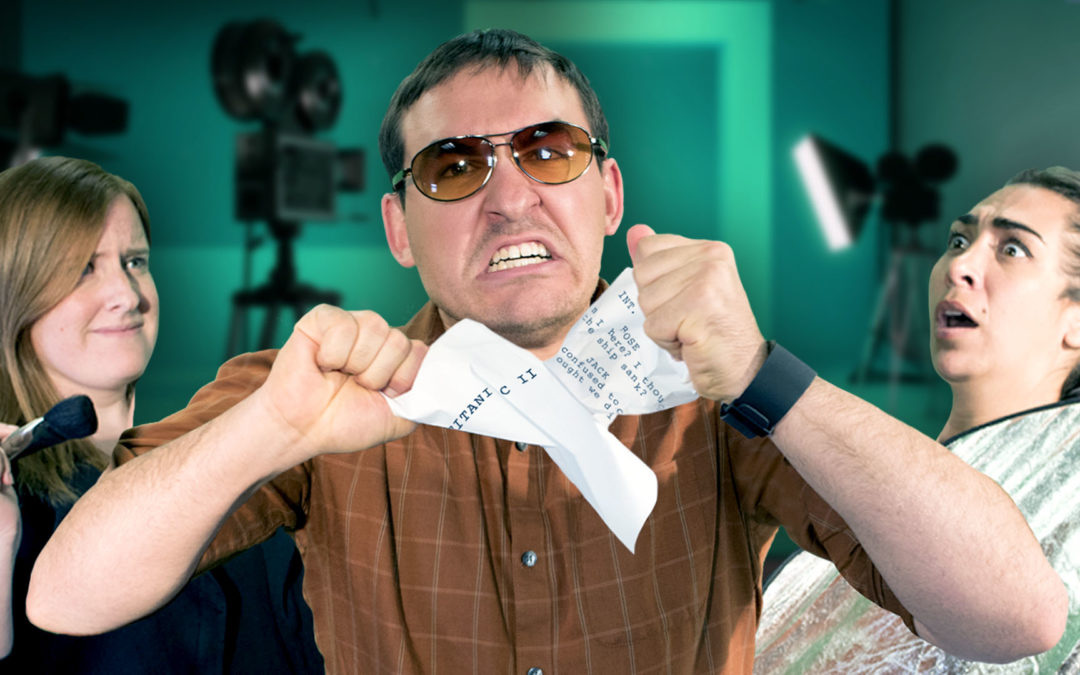So you’re shooting your first feature and you’re working with Hollywood megastar Bristian Kale! Suddenly, maybe to no surprise, he throws a tantrum on set. What do you do?
Well… you suck it up. It’s a small price to pay to get Bristian Kale in your first film!
The rest of us are far more likely to work with actors whose skills and experience are more commensurate with our own. Ideally you’ve found performers who are thrilled to be there, happy to work for scale, and willing to go the extra mile. But even the best actors can be needy, fragile, or temperamental at times.
Here are five tips on how to get the best out of a performer at their worst:
1. Establish your authority
The hierarchy of a film set is a delicate balance of power and ego. On the most functional sets, the cast and crew are seamless extensions of the director’s vision. There is nothing more dangerous than an actor (or frankly, anyone) taking over a set and distorting things to suit their individual goals. Often a difficult actor will test your authority early. They’ll question your decisions, attempt to subvert your instructions, or shift the focus to themselves when it’s not their moment. Establish that you are in control from the start. Be respectful and reasonable, but firm. A wishy-washy response, particularly at the beginning of a shoot, will only lead to more problems.
2. Avoid conflict when possible
Collaboration is a fundamental part of the filmmaking process, but sometimes you and your performer just won’t see eye to eye on a certain scene or beat. Some actors won’t like an idea unless they came up with it, so you might have to convince them that your idea and theirs are essentially the same. Take an element of their suggestion and steer it towards what you want. If you still find yourself at an impasse you can give them the option of doing some takes their way after first doing it yours or vice versa. They’ll feel empowered creatively at little cost to you. Who knows? Maybe you will end up liking their take!
3. Be careful casting friends
It might seem like a great idea to cast friends or acquaintances with whom you already have a rapport. Working with friends can be fun, however, they might actually be less disciplined on set or have a difficult time respecting the director/actor hierarchy with their “buddy.” Remember, this is a business and your work is at stake. Whether they are friends or new connections, make sure you only bring on pros who are serious about the work and are willing collaborators. Unless you’re friends with Bristian Kale. He’s amazing!
4. Take a walk, feed the ego
If you find yourself struggling with a performer in preproduction or rehearsals, you can always recast. You will probably save yourself a lot of headaches, despite the initial inconvenience. But if you’re in the middle of your shoot when the drama begins, it’s important to keep the peace. Put on your most diplomatic smile, walk the actor around the block to clear the air, and thank them for being there. Pump them up, reestablish authority (and hopefully trust), and get back to work.
5. Learn from your mistakes
Pay attention to the different types of personalities you come in contact with on set. How does your style mesh with theirs? What works? What doesn’t? Today’s rough experience can be a teaching tool for tomorrow. Be particularly mindful of how your actors behave in auditions and rehearsals, so you can hopefully spot the red flags and avoid hiring a difficult actor the next time around. Pretty soon Bristian Kale will be begging you for a role!

